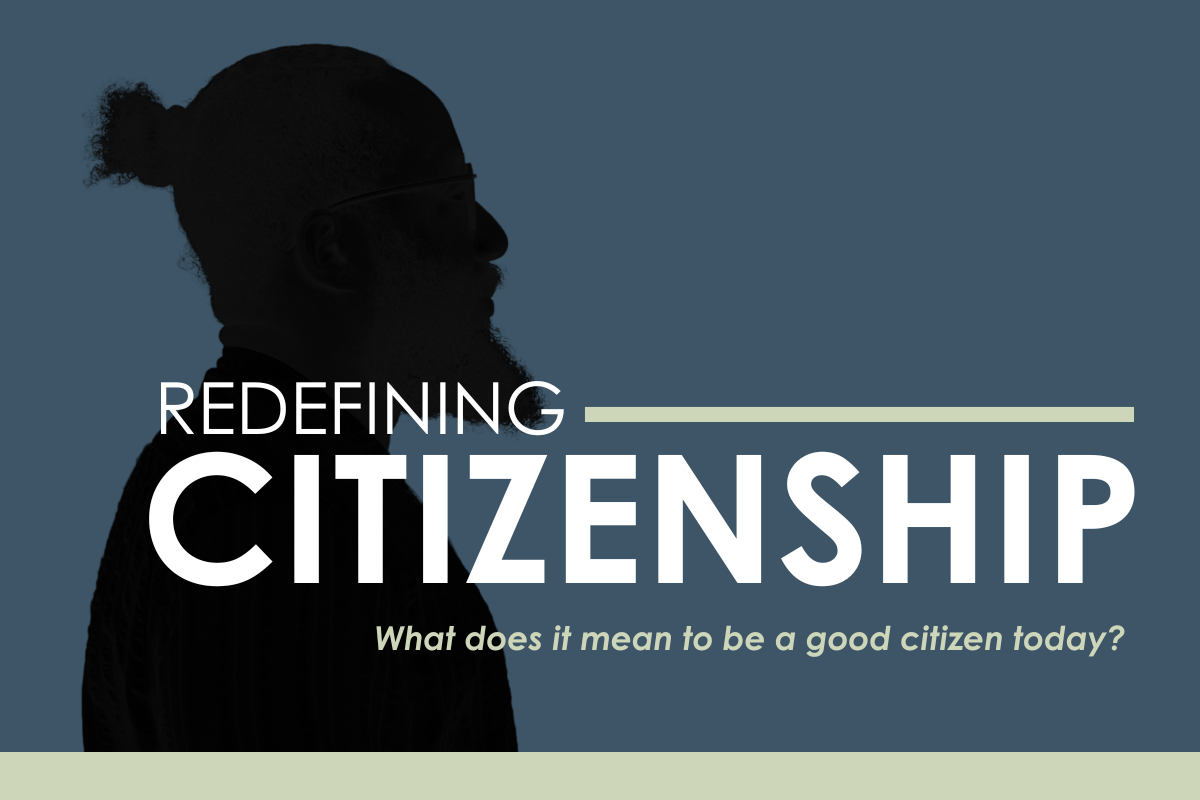Redefining Citizenship: What does it mean to be a good citizen today?
November 13, 2024
Share

Concerns about the strength and efficacy of our democracy are front and center for many Americans, including the very concept of democratic citizenship. How can we redefine “citizenship” for today’s context in a way that resonates with a diverse range of civic learning advocates? In this series, the Institute for Citizens & Scholars is excited to share three projects we undertook to explore this question raised by the Mapping Civic Measurement report.
November 5, 2024, over 140 million U.S. citizens made their voices heard.
Some of us may have done so eagerly, with a sense of patriotic duty or excitement to support our candidate or cause. Others may have filled in their ballots reluctantly, acknowledging the weight of the current moment or motivated by a deep concern for the future. And there are also those of us who chose not to participate and those who, for whatever reason, could not.
The right to vote is a cornerstone of our democracy, so it’s easy to equate “voting” with “citizenship.” And especially during elections, we hear a lot about citizenship and voting. We are reminded that it is our duty to vote as citizens, but we should also recognize that many individuals in the U.S. do not participate on Election Day—whether by choice, due to citizenship status, or because they are not yet of age. But if a “citizen” is anyone who wants to be engaged in their community and work towards bettering it, “citizenship”—and the acts and responsibilities associated with it — involves much more than casting a vote on Election Day.
In February 2023, we launched Mapping Civic Measurement: How are we assessing readiness and opportunities for an engaged citizenry?, which provided the first-of-its-kind landscape review of measurement tools in civic learning and adjacent spaces. In addition to introducing a new conceptual framework for discussing civic measurement, the report provided several key findings, including that definitions of “good citizenship” vary and need to be reexamined in our changing world. Mapping Civic Measurement poses the question: How can we define “citizenship” that both speaks to a broad swath of actors in the civic learning space and accounts for today’s context?
We noted that while there have always been differing conceptions of citizenship, the dramatic social, technological, and political changes happening nationally and internationally are altering what it takes to be a “good citizen.” The recent election offers a potential case study for illustrating these changes:
- Fast-changing technological advances have shifted the skills citizens need and how they participate in our democracy. The rise of social media has made it easier for more people to have important discussions about the health of our democracy online, while simultaneously providing the infrastructure for mis- and disinformation to spread easier and faster than ever.
- The traditional definitions and measures used in civic education to assess civic knowledge, skills, and dispositions can seem out of step with current reality. In the long run, will a young adult find their ability to name the three branches of government more useful than having the skills to fact-check a social media post? Understanding these new media literacy skills and how to teach them—both in formal and informal education settings for those no longer enrolled in school—is very much a work in progress for the civic field.
- Dissatisfaction with the current state of public life and institutions is high and we struggle to find consensus on the role citizens should play in our democracy. This lack of consensus provides an opportunity to identify shared assumptions and areas of agreement between civic field professionals and young people navigating rapid changes as they step into their role as citizens.
Citizens & Scholars invites you to follow along as we share the three projects we undertook to explore the topic of citizenship. This series will highlight:
- Interviews with diverse individuals working in and around the civic learning field
- Insights from scholarly literature
- Takeaways from a pilot survey of young people
While our original goal was to propose a new working definition of “citizenship” for the field, our findings have led us to ask new questions, which we’ll discuss in our conclusion. In the meantime, we hope that the learnings we share in this series can be used to deepen our understanding of “citizenship,” especially for young people, and help us move toward a definition that reflects the diverse views and priorities of civic learning stakeholders.
To prepare the next generation to be civically well-prepared, productively engaged, and committed to democracy, we must understand how different generations think about the concept of “citizenship” and what it means to be a “good citizen” today.
Join us over the next few weeks as we explore this topic!
Next post: Redefining Citizenship: Interviews with Civic Field Leaders
Special thanks to Anna Gallos for her important role in shaping this series.
Stay Engaged
Get More News
Join our mailing list to get more news like this to your mailbox.
Support Our Work
Help us invest in the talent, ideas, and networks that will develop young people as effective, lifelong citizens.
Ways to Support Us